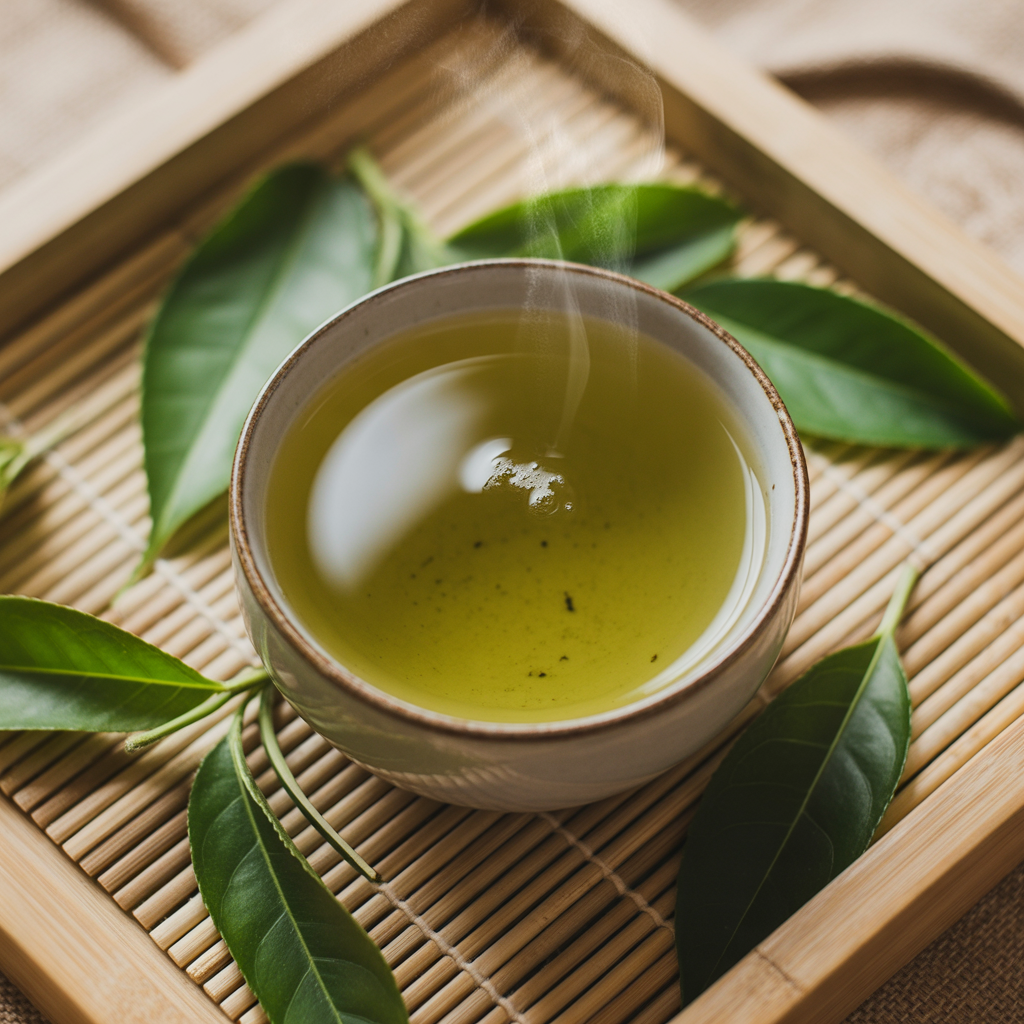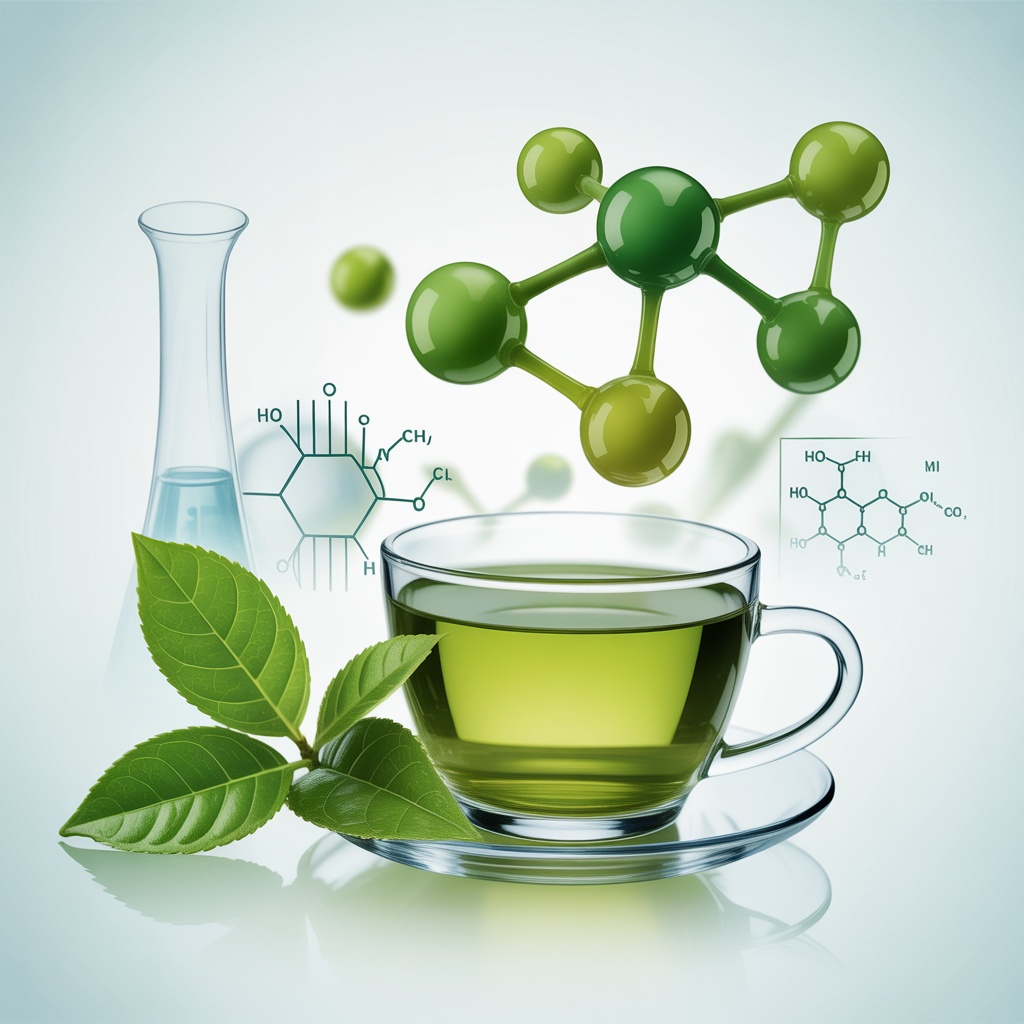From ancient Chinese tea ceremonies to modern wellness routines, green tea has traveled through millennia to become one of the world’s most celebrated beverages. With over 3.7 billion cups consumed daily worldwide, this emerald-hued drink has captured the attention of both tea enthusiasts and health researchers alike. What makes green tea so special isn’t just its delicate flavor and cultural significance—it’s the remarkable array of naturally occurring compounds that modern science has begun to understand and appreciate.
Recent decades have brought forth extensive research examining green tea’s potential health-supporting properties, revealing insights into compounds like catechins, EGCG, and L-theanine. While green tea isn’t a miracle cure or medical treatment, the growing body of scientific evidence suggests it may offer various wellness benefits when incorporated into a balanced lifestyle.
This article explores the research-supported benefits of green tea, from its antioxidant properties to its potential role in supporting heart health, brain function, and metabolism. We’ll also discuss practical ways to maximize these benefits through proper brewing techniques and mindful consumption. Please remember that this information is for educational purposes only and should not replace professional medical advice. Always consult with qualified healthcare providers for any health concerns or before making significant changes to your diet or lifestyle.

Understanding Green Tea’s Unique Properties
The Science Behind Green Tea
Green tea’s distinctive profile comes from its minimal processing compared to other tea varieties. While black tea undergoes full oxidation and oolong tea partial oxidation, green tea leaves are quickly heated or steamed to prevent oxidation, preserving their natural compounds and characteristic green color.
This gentle processing method maintains high levels of beneficial compounds, particularly catechins—a type of flavonoid that acts as a natural antioxidant. The most studied of these catechins is epigallocatechin gallate (EGCG), which research suggests may account for many of green tea’s potential health-supporting properties. Green tea also contains L-theanine, an amino acid that may promote relaxation, and moderate amounts of caffeine that work synergistically with other compounds to create green tea’s unique effects.
These components work together in what scientists call a synergistic relationship, meaning their combined effect may be greater than the sum of their individual parts. This natural complexity is one reason why whole green tea consumption is often preferred over isolated supplements in research studies.
Types of Green Tea
Green tea comes in various forms, each with slightly different flavor profiles and preparation methods. Sencha, the most popular variety in Japan, offers a fresh, grassy taste. Matcha, made from ground whole tea leaves, provides a more concentrated source of nutrients. Jasmine green tea combines green tea with jasmine flowers for a floral aroma, while Gunpowder green tea features tightly rolled leaves that unfurl during brewing.
Each variety maintains the core beneficial compounds that make green tea special, though concentrations may vary slightly based on growing conditions, processing methods, and preparation techniques.
Research-Supported Health Benefits
Antioxidant Powerhouse
Fighting Free Radicals
One of green tea’s most well-documented properties is its antioxidant activity. Antioxidants are substances that may help protect cells from damage caused by free radicals—unstable molecules that can contribute to oxidative stress in the body. This process is a natural part of metabolism, but environmental factors like pollution, UV radiation, and certain lifestyle choices can increase free radical production.
Green tea demonstrates impressive ORAC (Oxygen Radical Absorbance Capacity) values, a scientific measure of antioxidant activity. Research published in peer-reviewed journals suggests that the catechins in green tea, particularly EGCG, may help neutralize various types of free radicals, potentially supporting general cellular health and normal aging processes.
Studies indicate that regular green tea consumption may contribute to the body’s overall antioxidant defense system, working alongside other dietary antioxidants from fruits, vegetables, and other plant-based foods to support optimal cellular function.

Heart Health Support
Cardiovascular Wellness
Multiple studies have examined green tea’s potential role in supporting cardiovascular health. Research suggests that regular green tea consumption may help maintain healthy cholesterol levels already within normal ranges. Some studies indicate that green tea catechins might support the balance between LDL and HDL cholesterol, though individual responses can vary significantly.
Additionally, some research has explored green tea’s potential effects on blood pressure in healthy individuals. While results have been mixed, several studies suggest that regular consumption might support healthy blood pressure levels already within normal ranges. Green tea may also support healthy circulation and arterial function, according to some clinical trials.
It’s important to note that these findings represent general trends observed in research populations and should not be interpreted as medical advice. Individuals with heart conditions or cardiovascular risk factors should always work with their healthcare providers to develop appropriate management strategies.
Brain Function and Mental Clarity
Cognitive Support
The unique combination of L-theanine and caffeine in green tea has attracted significant research attention for its potential cognitive effects. Unlike the sometimes jittery energy from coffee, green tea’s moderate caffeine content works alongside L-theanine to potentially promote alert relaxation—a state of calm focus that many tea drinkers report experiencing.
Studies suggest that this combination may support attention, focus, and mental clarity without the anxiety or crash sometimes associated with higher caffeine beverages. L-theanine appears to promote the production of alpha brain waves, which are associated with relaxed alertness and may help reduce stress-related tension.
Some research has also explored green tea’s potential role in supporting healthy aging of cognitive function. While this research is still developing, preliminary studies suggest that the antioxidant properties of green tea catechins might support brain health as part of an overall healthy lifestyle that includes regular exercise, adequate sleep, and a balanced diet.
Metabolism and Weight Management Support
Metabolic Benefits
Green tea has been studied for its potential effects on metabolism and energy expenditure. Some research suggests that the combination of catechins and caffeine in green tea might support thermogenesis—the process by which the body burns calories to produce heat. However, these effects are generally modest and vary significantly between individuals.
Studies have also examined green tea’s potential role in fat oxidation, the process by which the body uses stored fat for energy. While some research indicates positive effects, particularly when combined with regular physical activity, it’s crucial to understand that green tea is not a weight loss solution on its own.
Any potential metabolic benefits from green tea work best as part of a comprehensive approach to healthy living that includes a balanced diet, regular exercise, adequate sleep, and stress management. Green tea should never be viewed as a substitute for these fundamental healthy lifestyle practices.
Immune System Support
Natural Defense Mechanisms
Research has investigated green tea’s potential role in supporting the immune system’s natural functions. The catechins in green tea, particularly EGCG, have demonstrated antimicrobial properties in laboratory studies, suggesting they might help the body’s natural defenses against certain harmful microorganisms.
Some studies have explored whether regular green tea consumption might support seasonal wellness, though results have been mixed and more research is needed to draw definitive conclusions. The antioxidant properties of green tea may also contribute to overall immune function by supporting the health of immune cells.
While these findings are promising, it’s important to remember that immune health depends on many factors including adequate sleep, regular exercise, stress management, a varied diet rich in nutrients, and proper hygiene practices. Green tea may be a helpful addition to these practices but should not be relied upon as a primary immune support strategy.
How to Maximize Green Tea Benefits
Optimal Brewing Methods
The way you prepare green tea can significantly impact both its flavor and the availability of beneficial compounds. Water temperature is crucial—using water that’s too hot can destroy delicate catechins and create a bitter taste. The optimal temperature range is 160-180°F (70-80°C), which is cooler than the boiling point.
Steeping time also matters. Most green teas reach optimal extraction of beneficial compounds within 2-3 minutes. Longer steeping times may increase bitterness without significantly improving the concentration of helpful compounds. A general ratio of one teaspoon of loose tea or one tea bag per cup of water works well for most varieties.
For those who prefer stronger tea, it’s better to use more tea leaves rather than extend the steeping time. This approach maximizes beneficial compounds while minimizing the extraction of tannins that can create bitterness.

Timing and Frequency
Research suggests that consuming 2-3 cups of green tea daily may provide optimal benefits for most people. However, individual tolerance to caffeine varies significantly, and some people may need to limit their intake or avoid green tea later in the day to prevent sleep disruption.
Many people find that drinking green tea between meals works well, as it may help with absorption of beneficial compounds. However, avoid consuming green tea immediately with iron-rich meals, as the tannins can inhibit iron absorption. If you’re taking iron supplements or have concerns about iron absorption, consult with your healthcare provider about optimal timing.
For those sensitive to caffeine, morning and early afternoon consumption may work best, allowing time for the caffeine to metabolize before bedtime. Some people also prefer to start with one cup daily and gradually increase their intake to assess their tolerance.
Enhancing Absorption
Certain foods and additions may help enhance the absorption or effects of green tea’s beneficial compounds. Adding a small amount of lemon juice may help increase the bioavailability of catechins, as vitamin C can help preserve these compounds during digestion.
A small amount of natural honey can add flavor without significantly impacting the tea’s beneficial properties, though it’s best to add honey after the tea has cooled slightly to preserve honey’s own beneficial compounds. Some people enjoy green tea with a light, healthy snack, particularly those containing healthy fats, which may aid in the absorption of fat-soluble compounds.
Avoid adding milk to green tea if your goal is to maximize antioxidant benefits, as some research suggests that dairy proteins may bind to catechins and reduce their bioavailability.
Important Considerations and Precautions
Who Should Be Cautious
While green tea is generally safe for most healthy adults when consumed in moderate amounts, certain individuals should exercise caution or consult with healthcare providers before regular consumption. People with caffeine sensitivity may experience symptoms like jitters, anxiety, or sleep disruption even from green tea’s moderate caffeine content.
Pregnant and breastfeeding women should discuss green tea consumption with their healthcare providers, as caffeine crosses the placenta and can be present in breast milk. Some experts suggest limiting caffeine intake during pregnancy, and green tea contributes to overall daily caffeine consumption.
Green tea may interact with certain medications, particularly blood thinners like warfarin, as vitamin K in tea leaves might affect clotting. The tannins in green tea can also interfere with iron absorption, which may be a concern for people with iron deficiency or those taking iron supplements. Additionally, green tea might affect the absorption of certain other medications.
Individual tolerance varies significantly, and what works well for one person may not be suitable for another. Always consult with qualified healthcare providers if you have specific health conditions, take medications, or have concerns about adding green tea to your routine.
Incorporating Green Tea into Daily Life
Practical Tips for Green Tea Enthusiasts
Making green tea a regular part of your routine doesn’t have to be complicated. Many people enjoy starting their day with a cup of green tea as a gentler alternative to coffee, while others prefer it as an afternoon pick-me-up that won’t interfere with evening sleep.
For variety, consider exploring different preparation methods. Matcha lattes offer a creamy, concentrated option, while iced green tea provides refreshing summer hydration. Green tea can also be incorporated into smoothies or used as a base for healthy fruit-infused beverages.
When selecting green tea, look for reputable brands that provide information about sourcing and processing. Loose leaf teas often offer superior quality and flavor compared to lower-grade tea bags, though high-quality bagged options are certainly available. Store tea in a cool, dry place away from light and strong odors to preserve freshness and beneficial compounds.
Remember that developing a green tea habit is most successful when approached gradually and mindfully. Start with one cup daily and pay attention to how your body responds, adjusting timing and quantity based on your individual needs and preferences.
Conclusion
Green tea offers a compelling combination of pleasant taste, cultural richness, and scientifically-supported health benefits. From its powerful antioxidant properties to its potential support for heart health, brain function, and metabolism, green tea represents a simple yet meaningful addition to a healthy lifestyle.
The key to maximizing green tea’s benefits lies in consistent, mindful consumption as part of a balanced approach to wellness that includes proper nutrition, regular physical activity, adequate sleep, and stress management. While green tea is not a cure-all or substitute for medical care, research suggests it can be a valuable component of a health-conscious lifestyle.
As with any dietary change, individual responses vary, and what works best for you may require some experimentation with varieties, preparation methods, and timing. Most importantly, remember that this information is educational in nature and should complement, not replace, guidance from qualified healthcare professionals. Whether you’re new to green tea or looking to optimize your current consumption, approaching this ancient beverage with both appreciation for its traditions and respect for scientific evidence can help you make the most of its potential benefits.